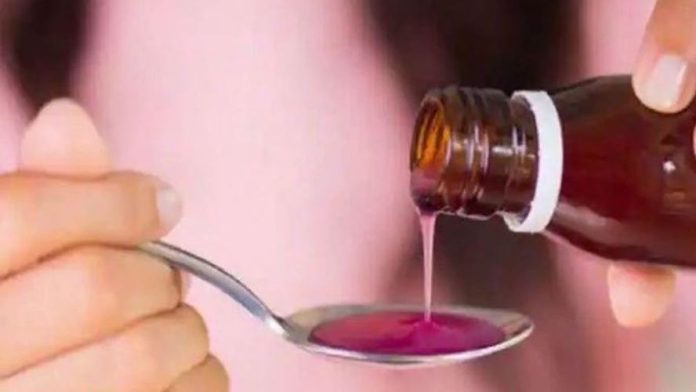Report reveals that a particular pharmaceutical company in India uses adulterated substances during manufacturing, according to two sources with knowledge of the situation told Reuters that the Indian manufacturer of cough syrups used a toxic industrial-grade ingredient rather than the legal pharmaceutical version, which Uzbekistan claimed last year had poisoned 19 children.
According to Reuters, the firm, Marion Biotech, purchased the ingredient, propylene glycol (PG), from trader Maya Chemtech India. However, according to a source at the company who is familiar with the Marion investigation, Maya “dealt in only industrial-grade” materials and lacked the necessary license to sell pharmaceutical-grade materials.
The person, who wished to remain unnamed while the matter is being looked into, said, “We did not know Marion was going to use it to make cough syrups.” “No one ever tells us where their material is used.”
The two sources claimed that the syrup was made with industrial-grade PG, a poisonous substance that is frequently found in liquid detergents, antifreeze, paints, or coatings as well as to increase the potency of pesticides.
A second source, an investigator, who asked to remain unnamed because the investigation is ongoing, stated that Marion “bought commercial-grade propylene glycol.”
The source continued, referring to national standards for the composition of pharmaceutical products, “They were supposed to take Indian Pharmacopoeia-grade.”
The investigator claimed that Marion did not also test the ingredient before using it in the syrups it sold to Uzbekistan.
Manufacturers are obligated to guarantee the safety of the ingredients they use, according to Indian regulations on drugs and cosmetics.
The company source states that although Maya is not charged, the investigation is still ongoing. Maya’s employer, the national capital territory of Delhi’s Assistant Drugs Controller, Deepak Sharma, declined to comment because the federal drugs authorities were looking into the case.
Marion has previously denied any wrongdoing and claims to deal in pharmaceuticals, herbal, and cosmetic products. Requests for comment were not answered by the business, the Indian drug regulator, or the health ministry.
Insufficient levels of the toxins diethylene glycol (DEG) and ethylene glycol (EG), which are used in products not intended for human consumption, were found in the Marion cough syrups Ambronol and DOK-1 Max, according to a study conducted by the Uzbekistani health ministry last year.
Four people, including two executives of a business that imported the Marion drugs, were detained in Uzbekistan in January in connection with the 19 deaths. Reuters was unable to find out the case’s status.
A query regarding potential sanctions in Uzbekistan received no response from the health ministry.
“Spurious and Adulterated”
Experts in pharmaceutical manufacturing claim that DEG and EG have been substituted for propylene glycol by dishonest actors because they are less expensive.
The World Health Organization stated to Reuters earlier this month that its current working theory is that one or more suppliers mixed the less expensive toxic liquids with the genuine chemical in 2021 when the price of propylene glycol spiked.
When asked about Marion’s ingredient choices, a WHO spokesperson responded, “It is crucial that product manufacturers only work with suppliers who meet the necessary qualifications. “.
According to tests conducted in January by a government laboratory in India, 22 samples of syrup made in Marion were “adulterated and spurious,” the nation’s drug controller reported in March.
Marion’s license was revoked by Uttar Pradesh authorities in March. Police issued warrants for the arrests of two directors and three of its employees. According to Uttar Pradesh police officer Vijay Kumar, the three workers have since been released on bail.
One of them, operations director Tuhin Bhattacharya, claimed to have left Marion, but Reuters was unable to confirm his claim. Mool Singh and Atul Rawat, both chemists, as well as their attorneys, were not reachable by Reuters.
According to a court order seen by Reuters, a lawyer for the two Marion directors informed the state’s Allahabad High Court in April that the drugs had been discovered to be “not of standard quality,” but they had not been adulterated. The attorney also stated that the directors had not broken any Indian laws because the drugs were only intended for export.
The directors, Jaya Jain and Sachin Jain, were forbidden by the court from being detained unless they had already been found guilty. Reuters was unable to reach the directors, and their attorney, Rohan Gupta, remained silent.
India’s drug regulator instructed the nation’s pharmaceutical companies not to purchase PG from Maya in March, according to Reuters.
Standards
In addition to the deaths in Uzbekistan, at least 70 children died in the Gambia last year after ingesting cough syrups produced by a different company in India that were later discovered to be contaminated with the toxins, and more than 200 children died in Indonesia as a result of consuming contaminated cough syrups.
A global investigation into the pharmaceutical supply chain was launched in response to the deaths.
Only traces of EG and DEG are permitted by international standards in pharmaceutical-grade propylene glycol. Because they are not meant to be consumed by humans, the limitations for the industrial or commercial grade version are less strict.
The other Indian company, Maiden Pharmaceuticals, exported cough syrups that contained the toxins to the Gambia. The WHO blamed these syrups for the children’s deaths, but Maiden has denied any wrongdoing.
The Gambia informed India’s drug regulator in June that starting on July 1 it would require all pharmaceutical products from India to be inspected and tested in India, at the exporter’s expense, prior to shipment — the first known restrictions on domestic exports in response to the deaths associated with Indian-made syrups.
Starting in June, India made it a requirement for businesses to test their cough syrups before export.
(source Reuters)













